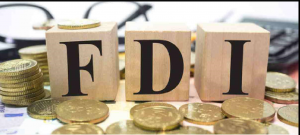Moody’s Investors Service has said Bangladesh’s Ba3 rating and stable outlook reflect Moody’s assessment of four factors—its ‘low’ economic, institutional and government financial strengths, as well as its ‘low’ susceptibility to risks from financial, economic and political events.According to a just-released Moody’s report, titled ‘Credit Analysis: Bangladesh’, the country’s strong and stable growth support its rating.
Macroeconomic stability was regained in 2012, as seen in the shift in the current account back to surplus and the decline in inflation. However, persistent labour disruptions and bank stability pose risks for going forward, said a Bangladesh Bank release on Thursday night.
More importantly, the International Monetary Fund’s Extended Credit Facility (ECF) approved in March 2012 is providing a framework for prudent policies.
The government has passed two major pieces of legislation—the Bank Companies Act (BCA), which aims to enhance the mandate of Bangladesh Bank, the country’s central bank; and a landmark revision to the VAT law.
The rating also incorporates economic, government financial and institutional weaknesses.
Fiscal imbalances have constrained Bangladesh’s government financial strength, mainly because of its extremely low revenue to GDP ratio of 13 percent resulting in not from a policy of low taxation, but from a low tax base and poor compliance.
Bangladesh’s governance weaknesses became more apparent in the past year, as seen in the World Bank’s suspending funding for the Padma Bridge Project in June 2012 and a state-owned bank’s, Sonali, misappropriation of funds a few months later.
The incident involving Sonali Bank highlighted the weak governance structure of state-owned commercial banks and prompted the government to significantly tighten the regulatory framework to prevent the recurrence of such incidents.
Besides, escalating political tensions in the run-up to parliamentary elections—due between October 2013 and January 2014 — are a deterrent to investment and are disruptive to economic growth. Although political strife is unlikely to spiral out of control, Moody’s would view prolonged unrest as credit negative. UNB




